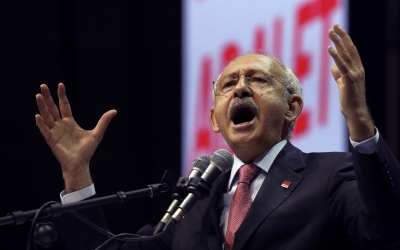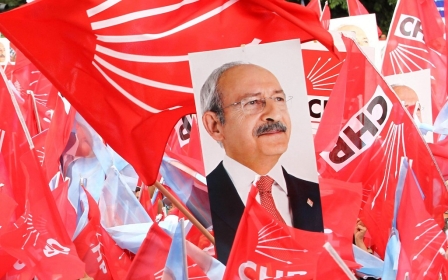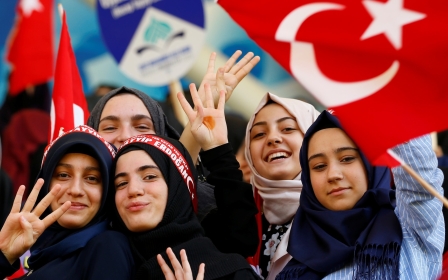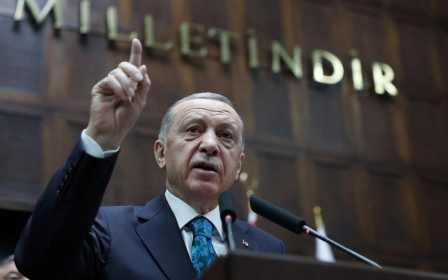Turkey elections: Thousands of Russian Twitter accounts reactivated in Turkish
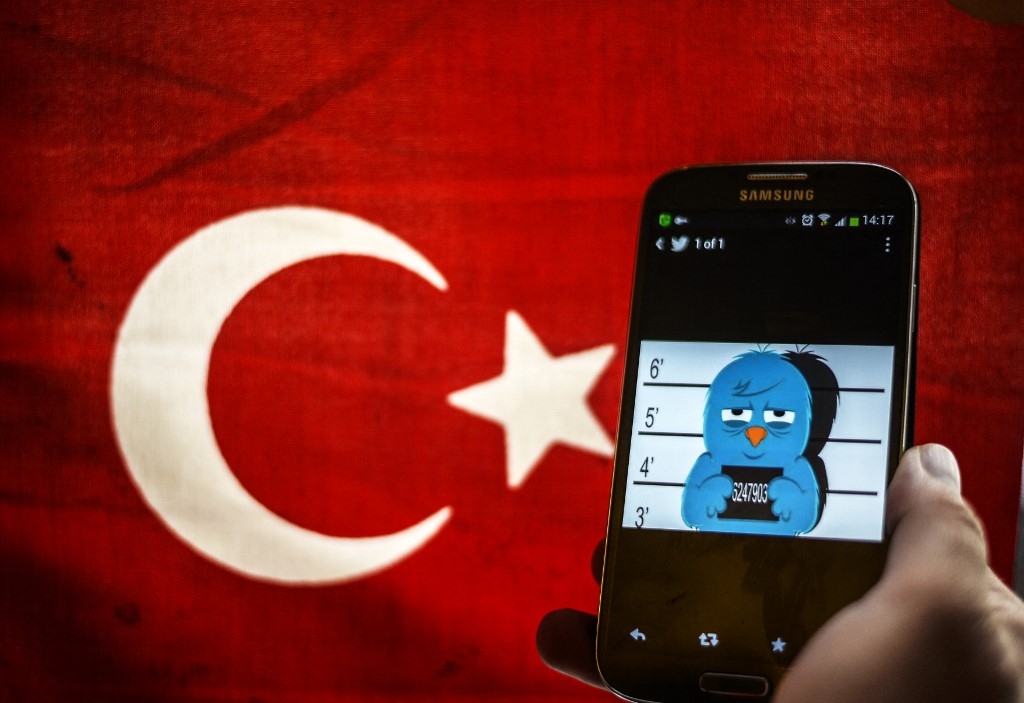
Thousands of Russian- and Hungarian-speaking Twitter accounts have been reactivated as Turkish users weeks before the 14 May elections in Turkey, raising the possibility of election interference through social media.
Ahmet Turan Han, the general manager of political consultancy and research company Datailor, told Middle East Eye that his company encountered a network of Twitter users, most probably bots, that had recently changed their identity.
"We have been observing in the last months that numerous existing Turkish accounts have been reactivated before the elections, which is normal," Han told MEE. "However, some of them are particularly interesting since they aren’t Turkish."
Han says his company provides daily social media data analysis services to major commercial companies operating in the food and services industry, and that’s how his company had randomly encountered the network.
"About 12,000 Russian- and Hungarian-speaking social media accounts were activated as Turkish and now follow all political parties and leaders," he said. "About 10,000 of them have been activated in the last two weeks."
Han added that 56 percent of these accounts in the past shared content in Russian, 28 percent of them in Hungarian and the remaining shared content in English.
"We estimate that the Hungarian accounts must have been used before the Hungarian elections last year," he said.
Turkish Twitter is specifically prone to trolling and the manufacturing of fake news since the major political parties, both ruling and opposition, push their agenda through so-called bot accounts. Russia, since the 2016 US presidential elections, is also frequently blamed for alleged election interference through social media and leaks.
All have bot followers
Previous research covering the data set between 2013-2023 indicated that 20 to 50 percent of trending topics in Turkey are fake and mainly propelled by the use of bots.
Tugrulcan Elmas, a postdoctoral fellow specialising in Twitter at Indiana University who penned the study, told a local media outlet that even though only 27 percent of the population are believed to be using Twitter in Turkey, its amplification is really high. Elmas said the content on Twitter usually ends up on news websites, and social media like WhatsApp and Eksisozluk.
Elmas, in a separate statement to MEE, said at least 20 percent of trending topics on Turkish Twitter this year have been manipulated and were not representative of what people were actually talking about.
Elmas said the existence of Russian-speaking accounts on Turkish Twitter alone doesn't mean that Moscow is behind an election interference operation.
"The fact that Russian-speaking accounts started tweeting in Turkish might mean that a Turkish social media company made a purchase of large quantity of Twitter accounts to use them bots to boost someone's follower count," he said. "They could purchase these accounts from a Russian company and convert them to Turkish."
Elmas' study indicates that other foreign-origin accounts are trying to push certain issues into becoming trending topics.
"But these foreign accounts might have been stolen by the companies that manipulate the trending topics in Turkey," he said. "Russian-speaking accounts may be linked to Russia, or may have been bought or taken over by the Turks."
In 2020, Twitter shut down some 7,340 accounts in Turkey, claiming that they were "state-linked information operations".
Han said Elon Musk had fired the team responsible for fighting fake news and finding out bot accounts soon after his takeover last year, and that’s why Twitter response on the issue had been limited.
"The Russian- and Hungarian-speaking accounts have so far been silent," Han said. "They only follow the major political parties and leaders, and don’t tweet out."
The Russian government is believed to have interfered with domestic Turkish politics, especially soon after the 2016 coup attempt.
A couple of fake articles alleging US involvement in the coup attempt, with titles such as "Top US national security official admits Turkey coup", were pushed out by suspected Russian-controlled websites.
Han added that Turkish presidential candidates Recep Tayyip Erdogan, Kemal Kilicdaroglu and Muharrem Ince all have bot followers.
"However, Ince is particularly interesting since his account and the trending topics associated with his campaign are particularly infested by bot accounts," Han said.
Ince, for example, lost 300,000 followers in the last 20 days, and they were quickly replaced by bot accounts.
Ugur Poyraz, the general secretary of opposition party IYI, earlier this week shared screenshots of bot accounts that have followed his Twitter channel, which he blamed on the government.
Han said bot accounts themselves alone don’t mean that they would propel the campaign of the person they follow.
"It could be vice versa, they could follow accounts to spam them and close them down, or to diminish their visibility on the platform," he added.
This article has been updated with comments from Tugrulcan Elmas
This article is available in French on Middle East Eye French edition.
Middle East Eye propose une couverture et une analyse indépendantes et incomparables du Moyen-Orient, de l’Afrique du Nord et d’autres régions du monde. Pour en savoir plus sur la reprise de ce contenu et les frais qui s’appliquent, veuillez remplir ce formulaire [en anglais]. Pour en savoir plus sur MEE, cliquez ici [en anglais].


